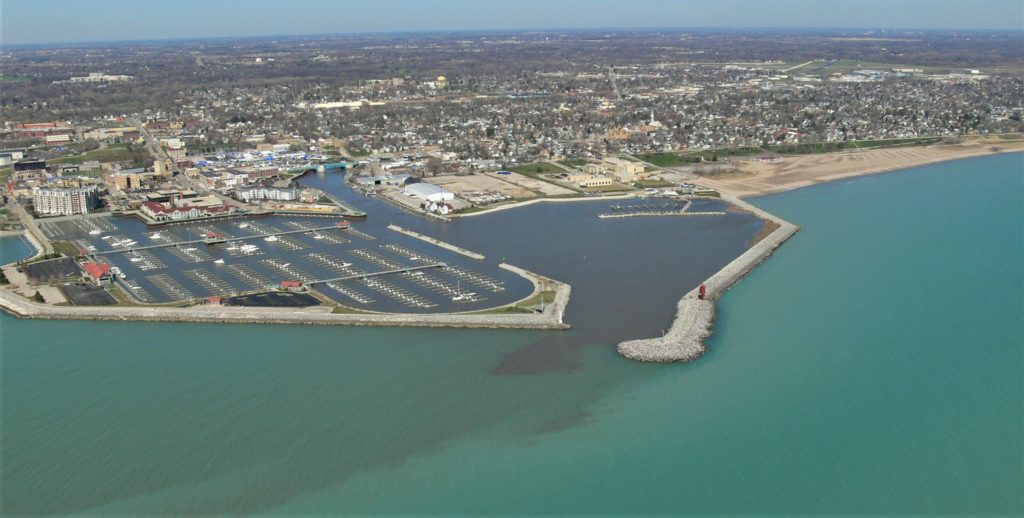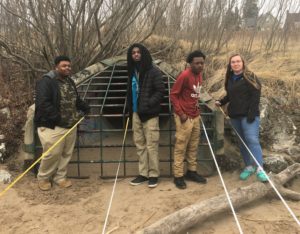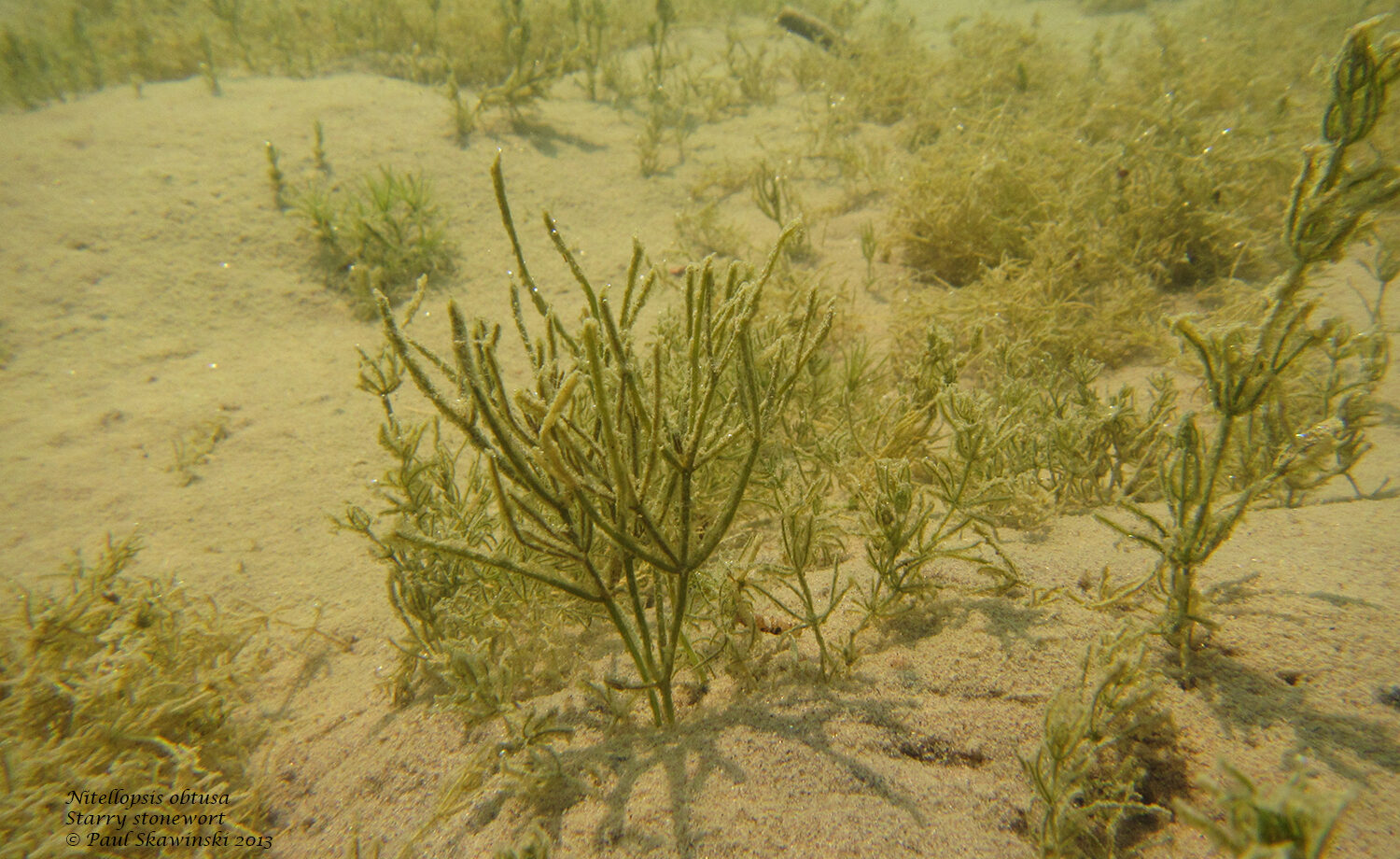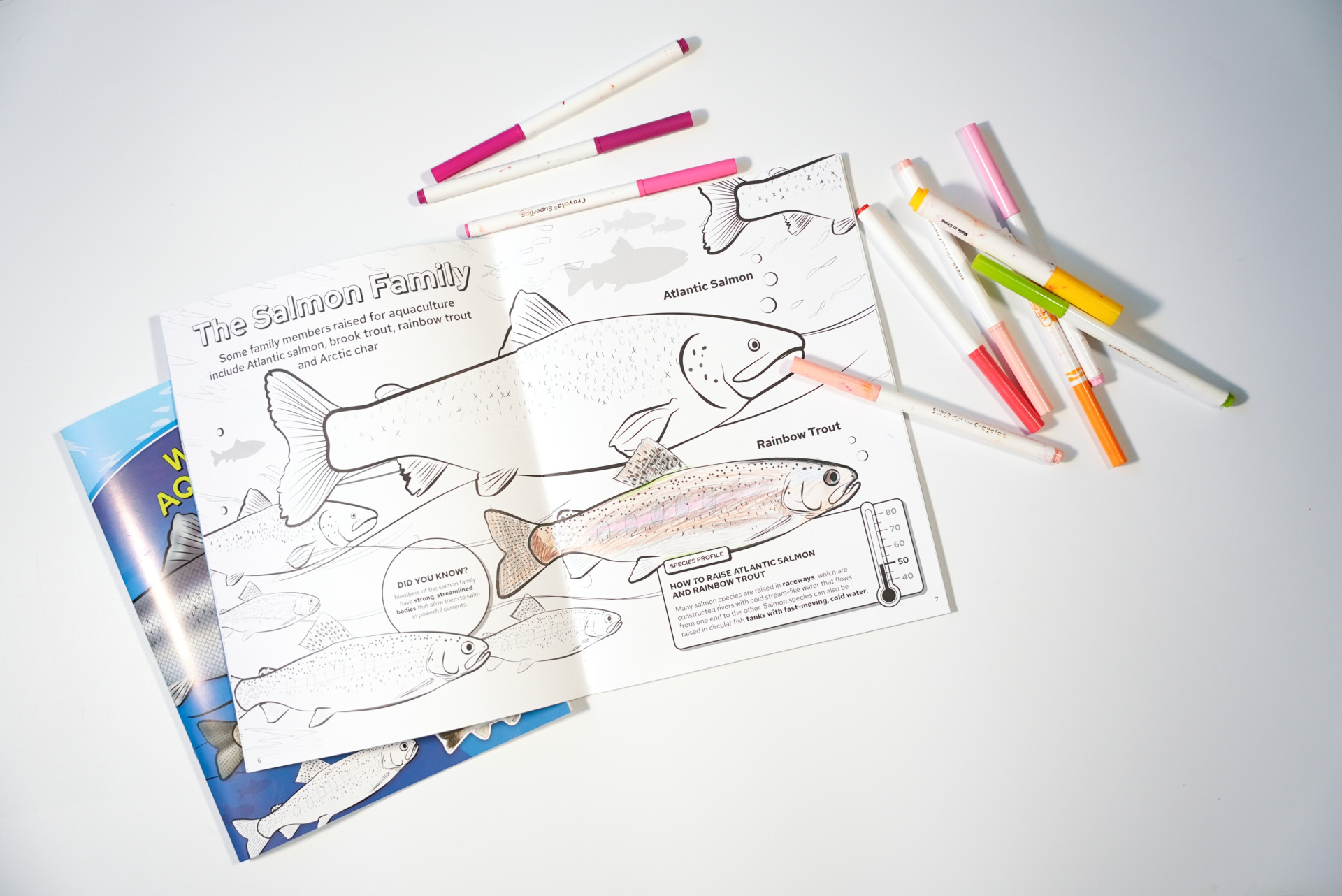
The North Beach area in Racine features several coastal engineering structures and a popular beach that will offer learning opportunities for middle-school students in the community. Image credit: David Mickelson, Wisconsin Coastal Management Program
When Adam Bechle, Wisconsin Sea Grant’s coastal engineering outreach specialist, was growing up in Green Bay, he did not feel connected to Lake Michigan. When he visited the shore during rare school field trips, he enjoyed the outings but there was no one who could tell him how waves worked or why the dike he was sitting on was built.
So, when Sea Grant senior special librarian and education coordinator, Anne Moser, approached Bechle about a project designed to connect middle-school students to their watershed by exploring coastal engineering concepts, he thought it was a great opportunity.
The two wrote a proposal to the Great Lakes Region Bay Watershed Education and Training (B-WET) program, through the National Oceanic and Atmospheric Administration, which funds projects that encourage “meaningful watershed educational experiences” for K-12 students and their teachers. Their 17-month pilot project, “Coastal Engineering Education: People, Place and Practice,” was funded through a competitive process and begins soon.
Moser said their Great Lakes B-WET project is unique. “This place-based approach to watershed learning is innovative in its use of coastal engineering as an educational framework to engage students. The other thing that struck the funders was that the project is focused not only on the place and the practice of coastal engineering, but also on the people. It was important for us to include career pathways that introduce students to a variety of coastal engineering, green infrastructure and healthy beach management careers.”
Bechle and Moser plan to work with seventh-grade students and at least four teachers in the Racine Unified School District. Bechle explained that they chose Racine for several reasons. “Racine got hit by a big storm in January of 2020 that did a lot of damage on the lakefront, plus high water levels have been causing problems at North Beach. It’s being inundated frequently and there’s standing water at times. So, there’s ongoing engineering work happening there. We also have a good relationship with the city of Racine, specifically, their public health department. They’ve done great work to bring their beaches up to outstanding water quality and have nature-based features that help with filtering stormwater.”

Crew leaders and a crew supervisor (right) with the Great Lakes Community Conservation Corps measure the width of North Beach. Image credit: Anne Moser
Also in Racine is Chris Litzau, president of the Great Lakes Community Conservation Corps (CCC), an organization that trains and educates disadvantaged populations in Racine with outdoor projects reminiscent of those conducted by the original Civilian Conservation Corps in the 1930s. Litzau’s group has been working with seventh graders in Racine over the past five years on a healthy beaches project on North Beach. The wide sandy beach can average over 1,000 visitors per month during summer. Numerous rock breakwaters, jetties and revetments lie south of the beach and offer examples of erosion and sediment movement.
The new project is multi-faceted and also involves Sea Grant staffers Natalie Chin and Ginny Carlton. In a nutshell, the team will meet with the school district to discuss its needs, create a five-lesson coastal engineering curriculum, bring the curriculum to teachers and to Great Lakes CCC crew leaders through workshops so that they can then teach their students, and work with the students to develop North Beach stewardship projects that use coastal engineering practices. Throughout the project, the students will also have the chance to be mentored by working engineers and other professionals who reflect the rich diversity of their community.
After evaluating how the project proceeds and is received, Bechle and Moser will make the curriculum available for use in other locations and school districts around the Great Lakes through the Center for Great Lakes Literacy. The Great Lakes CCC will be able to absorb the lesson into their regular programming.
Moser expects some challenges in developing the project curriculum. “We really have to start from scratch,” she said. “We need to pick Adam’s brain and take all the great work he’s done and somehow figure out how to engage the kids in a pretty technical field. It’s an exciting opportunity.”
What might the beach stewardship projects entail? Bechle said students could help with protecting fragile dune systems, reducing stormwater runoff, or even by developing social media campaigns to share the issues they learn about through the project. “There’s plenty of ideas where we can connect kids to the beach,” he said.
Readers who are connected to the engineering field and are interested in helping the project can contact Anne Moser. She said they are looking for mentors from Racine, Kenosha or even Milwaukee.





